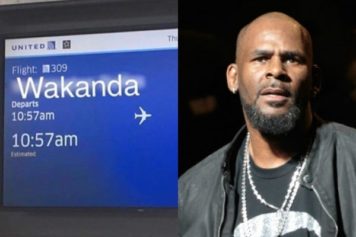
Riana Lynn said she plans to release a report about minority tech founders along with a resource website in January. (James C. Svehla/Blue Sky)
A Chicago-based organization is working to match Black startup founders with investors who may want to back their companies, according to The Chicago Tribune.
Code2040 Entrepreneurs in Residence program is compiling a report identifying all local tech companies founded by Black and Latino entrepreneurs. The goal is to make it easier for investors to find them.
“We want to understand all of the businesses that are out there, and we want to share this information with central partners and investors,” said Rianna Lynn, co-founder of FoodTrace and a Google Code2040 fellow. “These venture capitalists say they don’t know who’s out there. No one’s approaching them. We want to make sure our Chicago companies are being discovered.”
Code2040 Entrepreneurs in Residence program is working to solve a problem often faced by Black tech entrepreneurs seeking venture capital funding. They often complain they have a hard time getting funding from traditional sources. This problem was illustrated in a CNN special titled The New Promised Land — Silicon Valley. The documentary, which was part of Soledad O’Brien’s Black In America series, featured Black tech entrepreneurs trying to launch a company in Silicon Valley. An Asian tech entrepreneur told them they needed to hire a white man to front their company, because it would make it easier to get funding.
Donny Gamble, founder of the financial advice website, Personalincome.org, said he also experienced this problem when he tried to launch his website. He told Los Angeles-based paper, Our Weekly, he had to spend his own money to launch the site, which grossed $120,000 last year.
“I feel most of the angel/venture-backed money is still in what they call ‘the good ole boys club’ where you need to have relationships or a previous track record of success in order to get funded,” Gamble said. “This ties in a little bit with lack of capital, because it is hard to get your foot in the door, if you don’t know the right people. I have had so many great ideas over the years, but never could make them happen because I was not connected with the right individuals.”
Rapper Lupe Fiasco has also tried to bypass the tech funding problem by launching the Neighborhood Start Fund, an initiative that backs underserved minority entrepreneurs.
The tech industry has been criticized for its lack of diversity. Black people may be early adopters and heavy users of technology, but they are not getting hired by tech giants. For example, Black Twitter is a powerful force and 27 percent of Black adults use Twitter, but only 49 of the company’s 3,000 employees are Black, according to the Pew Research Center. The other tech giants don’t fare much better. Facebook has more than a billion users worldwide, but only two percent of its workforce is Black. In an interview with The Guardian, Rev. Jesse Jackson accused Twitter of taking Black people for granted.
“Black people are greater users of the product and capable of doing the jobs, but there has not been an adequate commitment to hire, train and maintain [Black people],” he said.
Lynn told The Chicago Tribune that once the report on Black tech entrepreneurs was completed it would serve as a great resource for investors.
“These venture capitalists say they don’t know who’s out there. No one’s approaching them. We want to make sure our Chicago companies are being discovered,” Lynn said.
The Tribune also said the report will precede the State of the Black Tech Ecosystem scheduled for Jan. 28. The event is being led by Black Tech Mecca, a group founded by Fabian Elliott, an advertising technology consultant at Google. According to its mission statement, “Black Tech Mecca is a collaborative community initiative that is building a thriving black tech ecosystem in Chicago by strengthening connections, quantifying impact, and directing growth for individuals, community organizations, and companies.”


